Economic
Merkel, Breaking German ‘Taboo,’ Backs Shared E.U. Debt to Tackle Virus
Faced with economic calamity and the threat of the coronavirus further fracturing the European Union, Chancellor Angela Merkel of Germany on May 18 broke with decades of German economic orthodoxy and agreed to back the idea of collective European debt to help those countries that have been hit hardest by the pandemic. Ms Merkel joined with President Emmanuel Macron of France to propose borrowing 500 billion euros, or $545 billion, for a common recovery fund. Its repayment would be the financial responsibility of the entire block, but it would primarily benefit the poorer south, which has been hit hardest by the virus. Although the proposal represents a significant shift in German thinking, Merkel described it as a “one-off effort,’’ with Germany agreeing to a plan whereby the European Commission, using its excellent credit rating, would borrow money for the fund. The debt would be paid back over time through the joint European Union budget, which is financed by a set formula by member states.
China vows to further cut negative list and lower tariff levels despite COVID-19
Chinese authorities said on May 18 that China would boost the opening-up of the country’s manufacturing, services and agriculture sector to allow foreign-controlled or owned enterprises into more sectors and remove all entry restrictions not included in its negative list. Chinese Commerce Minister Zhong Shan said at a press briefing that the list will be further reduced. Zhong said that China will release incentives to attract foreign investment into the country’s central and western regions as well as old industrial bases in the north eastern regions, which have abundant development potential. The ministry will also focus on implementing the Foreign Investment Law, creating a fair and competitive market environment for foreign investors, he said. Given huge opening-up challenges brought on by the global pandemic and the diminishing benefit of opening-up measures over the last 40 years, “China needs to roll out more concrete and attractive measures to optimize resource allocation,” Bai Ming, deputy director of the Ministry of Commerce’s International Market Research Institute, told the Global Times on May 18.
China sees inflation slow as coronavirus weighs on consumption
Slumping economic activity caused by the coronavirus is pushing down inflation in China and elsewhere. While China and many other countries have reopened their economies and factories after lockdowns to contain the spread of the disease, fears of a second wave of infections could continue to put downward pressure on consumption." In China, prices of services have also remained sluggish and thus it is unlikely inflationary pressure will increase," said Toru Nishihama, chief economist at the Economic Research Department of Japan's Dai-ichi Life Research Institute. "Concerns over 'disinflation' -- in which inflation rates remain stagnant -- are growing again," he added.If companies cannot make products, supply will decline and prices are more likely to go up. The same applies to services. Meanwhile, if people stay at home for fear of being infected, demand will decline and prices are more likely to go down. The coronavirus could work both ways, and there is some debate as to whether it will cause inflation or deflation in the long run. The evidence from China so far suggests the latter.
China to impose high tariff on Australian barley amid row over virus
The Chinese Commerce Ministry said May 18 that it has decided to impose a 73.6 percent anti-dumping tariff on Australian barley, saying the product is being sold at unfairly low prices. The latest move is allegedly retaliation against Australia, the first nation calling for an independent investigation into the origins of the new coronavirus, first detected in the central Chinese city of Wuhan late last year, foreign affairs experts say. The measure, which will be effective for five years from May 19, is expected to deal a crushing blow to Australia's agricultural sector. The Oceanic country is one of China's largest trading partners. Citing labelling and certification issues, China has already suspended beef imports from four major Australian meat processors. Beijing, however, has rejected the linkage between the trade restrictions and Australia's call for it to accept an independent inquiry. Reacting to the latest Chinese move, Australian Trade Minister Simon Birmingham said in a statement emailed to local media that his government "is deeply disappointed with China's decision to impose duties on Australian barley." "We reject the basis of this decision and will be assessing the details of the findings while we consider next steps." he said.
Japan business chief warns of radical labour market shake-up
Hiroaki Nakanishi, chairman of Hitachi and head of the Keidanren business lobby, told the Financial Times in an interview that propping up businesses during lockdown was not sufficient and governments would need to shift spending away from furloughs towards fundamental economic restructuring. His comments point to the next stage in the coronavirus crisis, as hopes for a swift recovery dim and temporary lay-offs become permanent redundancies in the worst affected sectors. “Even if we resolve coronavirus completely, then will our towns be as lively as before?” said Mr Nakanishi. “Just saving struggling companies, [won’t be enough] for the economies of Japan or the rest of the world. “It’s important to think really carefully about how far to encourage people to change jobs. If you assume that the corona pandemic is going to become a long-term thing, then that will be essential.” Although the historic role of the Keidanren chief has been to protect the interests of corporate Japan, Mr Nakanishi’s comments show a growing acceptance that Covid-19 will cause bankruptcies — and require radical changes to how the country does business.
Coronavirus creates repair headache for oil and gas industry
The coronavirus pandemic has disrupted maintenance at oil and gas projects and refineries from Russia’s Far East to the coast of Canada, storing up problems for an industry already reeling from slumping prices, analysts say. Lockdowns to stop the spread of COVID-19, the flu-like infection caused by the virus, have snarled the supply of spare parts and have prevented maintenance workers from doing their job. Regular repairs are needed to keep wells pumping, pipelines and refineries functioning and ships moving. Without maintenance, the risk of glitches or unplanned outages increases and delays risk driving up the cost of work later - partly because there will be a rush to do maintenance when lockdowns ease, and partly because plants have lost the optimal timing and weather for work during the northern hemisphere spring. “When the virus and the quarantine measures have been eased and it is safe to get back to work, it doesn’t mean the same work can be done with the same intensity because the weather windows could be missed and that can push maintenance even to the next year,” said Matthew Fitzsimmons, Vice President of the Oilfield Service team at research firm Rystad.
Shrinking South Korea oil storage capacity rattles Asia refiners
“We are in an unprecedented crisis,” said Kim Woo-kyung, at the country’s largest refiner, SK Energy. South Korea has the fourth-largest commercial storage capacity in Asia, and is a popular spot to store crude and fuels thanks to its proximity to the region’s big oil buyers, including China and Japan. In addition to its own refiners, state-run oil companies in countries such as the United Arab Emirates and Kuwait use South Korea’s storage facilities. With onshore facilities nearly overflowing, refiners are turning to costly floating storage. SK Energy has filled 95 per cent of its 12m-barrel onshore crude oil storage capacity, and storage on vessels — such as the 2m-barrel carrier it is using off Jeju — is running perilously low. “We are paying tens of thousands of dollars a day to keep the [oil carrier] floating but we have no other options,” said Ms Kim. South Korea’s biggest refining groups including SK Energy, GS Caltex, S-Oil and Hyundai Oilbank reported combined operating losses of Won 4.4tn ($3.6bn) in the first quarter in their worst-ever performance, according to regulatory filings.
UK announces new post-Brexit global tariff regime
The United Kingdom announced a new post-Brexit tariff regime on May 19 to replace the European Union’s external tariff. The new tariff regime, in place from January 2021, marks a departure from what some UK officials call an overly complex EU system, setting out Britain’s stall as it negotiates trade deals with both the United States and the Brussels-based bloc. It will apply to countries with which it has no agreement and removes all tariffs below 2%. “Our new Global Tariff will benefit UK consumers and households by cutting red tape and reducing the cost of thousands of everyday products,” International Trade Secretary Liz Truss said. The government said tariffs would be eliminated on a wide range of products, with 60% of trade coming into the UK tariff-free on WTO terms or through existing preferential access. The UK will maintain tariffs on products competing with industries such as agriculture, automotive and fishing, and remove levies on 30 billion pounds ($37 billion) worth of imports entering UK supply chains. The UK will also remove tariffs on products which support energy efficiency and will introduce a temporary zero tariff on goods being used to fight COVID-19 such as personal protective equipment.
The New Airline Travel: Fewer Flights, More Layovers, Rules for Bathrooms
A new age of air travel is taking shape. Airports and airlines are rolling out temperature checks for crew and, increasingly, passengers, as well as thermal scans to spot people with elevated body temperatures. Face masks are now de rigueur for travellers across the U.S. Passengers on Europe’s biggest budget carrier must raise their hands to use the toilet. Forget about the perks of priority boarding at Air France. The carrier is one of several boarding passengers seated at the back of the aircraft first, to limit traffic jams in the aisle. Many airlines are removing in-flight magazines, scrapping meal services on shorter routes, and parking the duty-free cart. Some of the biggest changes airlines envision are the result of what executives expect will be months, maybe years, of lower demand: They see fewer direct flights, for instance, which means more dreaded stopovers. Some airlines are considering requiring passengers to sign health certifications, or to eventually carry “immunity passports”—documentation that a passenger has had, and recovered from, the virus.
Strategic
US to back away from WHO move on Covid-19 drug patents
Many governments, particularly in Africa, fear they will be squeezed out by richer countries unless they can force companies that discover anti-Covid therapies to share their intellectual property with manufacturers able to produce them cheaply at scale. African ambassadors in Geneva, where the WHO is based, said US diplomats had sought to persuade them to support a dilution of language in the resolution, a proposal they had rejected. According to several people familiar with the situation, the US was planning to disassociate itself from part of the resolution but talks are continuing. Although the US will make its objections clear, the resolution is expected to pass. The White House declined to comment on the negotiations. “The US made some input trying to water down the references to Trips and patenting,” said one West African ambassador to Geneva, referring to Trade Related Aspects of Intellectual Property Rights. In 2001, in the so-called Doha Declaration, World Trade Organization ministers said that governments could overrule intellectual property in a public health emergency. The US and other nations with strong pharmaceutical sectors, including the UK, Switzerland and Japan; wanted language explicitly referring to the Doha Declaration removed from the resolution, according to an early draft seen by the Financial Times.
‘No time to waste’: Trump gives WHO 30 days to make ‘major improvements’ before US permanently freezes funding
US President Donald Trump has threatened to halt American funding for the World Health Organization (WHO) for good, giving the agency 30 days to clean up its act while insisting it mishandled the Covid-19 pandemic. In a scathing letter addressed to WHO Director General Tedros Adhanom on May 18, Trump took the agency to task for what he said were “inaccurate and misleading” statements about the coronavirus and moving too slowly to address the crisis, while also accusing it of doing China’s bidding along the way. It is unclear what the agency would have to do for the White House to resume funding, however, as the letter does not specify what kind of reforms the Trump administration would like to see, with the US president himself describing the three-page document as “self-explanatory” on Twitter. Earlier on May 18, Tedros said the organization would conduct a review of its “transparency” and “accountability” amid the pandemic, which will begin at the “earliest appropriate” time.
China announces $2 billion in virus help at WHO assembly, set up global humanitarian response depot
China will provide $2 billion over two years to fight the coronavirus pandemic and the economic fallout from it, President Xi Jinping said on May 18, rallying around the World Health Organization even as the United States has slashed funding for the U.N. health agency and sought to undermine its credibility. “The $2 billion over the next two years will support COVID-19 response efforts, including economic and social development, particularly in developing countries, Xi said. The European Union's 27-member bloc and other countries, meanwhile, called for an independent evaluation of WHO's initial response to the coronavirus pandemic "to review experience gained and lessons learned. The EU resolution proposes that the independent evaluation should be initiated "at the earliest appropriate moment" and should, among other issues, examine "the actions of WHO and their timelines pertaining to the COVID-19 pandemic." China will also work with the United Nations to set up a global humanitarian response depot and hub in China, ensure the operation of anti-epidemic supply chains and foster "green corridors" for fast-track transportation and customs clearance, said Chinese President Xi Jinping.
Taiwan postpones bid for observer status in WHO assembly meeting
Taiwan has postponed its efforts to win observer status at a World Health Organization Assembly that started on May 18, given the shortened, virtual format of the event where delegates are focusing on global coordination in curbing the novel coronavirus. Taiwan Foreign Minister Joseph Wu said earlier in the day that Taipei has "accepted the suggestion from our allies and like-minded nations to wait until the resumed session before further promoting our bid." It marks the fourth straight year of Taiwan's absence from the assembly. Taiwan's participation in the assembly had been uncertain as tensions flared between a U.S.-led group of states advocating for its inclusion and China, which lobbied for Taipei's exclusion, claiming its participation would violate Beijing's one-China policy. The United States condemned Taiwan's exclusion from the WHO's decision-making body. "At a time when the world continues to struggle with the COVID-19 pandemic, we need multilateral institutions to deliver on their stated missions and to serve the interests of all member states, not to play politics while lives are at stake," Secretary of State Mike Pompeo said.
Singapore’s lockdown is raising risk of catching dengue fever
Singapore reported 451 new coronavirus cases on May 19, as the second wave associated with migrant workers begins to dissipate, however the government has warned the lockdown is raising the risk of catching dengue fever. Migrant workers living in dormitories still account for the majority of new infections.But the city state is also facing a jump in dengue virus transmission. The National Environment Agency reported 529 dengue cases last week, up from the 300 to 400 weekly cases identified in the first four months of 2020. “As we enter the warmer months ahead, the increased risk of higher transmission of dengue is a concern,” the NEA said in a statement. “With more people staying home, there is a higher risk of disease transmission within housing estates, especially in areas where the population of the Aedes mosquito vector — a day biter — is high.” The NEA's dengue-prevention efforts during Singapore's near total lockdown, which will remain in place until June 1, include using SMS messages to alert residents in cluster zones and ramping up surveillance at construction sites that have remained closed during the lockdown. Two contractors will be charged in court for not meeting pest control requirements, the NEA said.
Tibetans demand China disclose fate of boy taken away in '95
Tibet's self-declared government-in-exile marked the 25th anniversary of the disappearance of a boy named as Tibetan Buddhism's second highest figure by calling on China on Sunday to account for his whereabouts. The Tibetan parliament in northern India, known as the Kashag, said the boy named the 11th Panchen Lama who was taken away at age 6 along with his family in 1995 continued to be recognized as the sole legitimate holder of his title. China, which claims Tibet as its own territory, named another boy, Gyaltsen Norbu, to the position and he is believed to live under close government control in mainland China and is rarely seen in public. "China's abduction of the Panchen Lama and forcible denial of his religious identity and right to practice in his monastery is not only a violation of religious freedom but also a gross violation of human rights," the Kashag statement said. "If China's claim that Tibetans in Tibet enjoy religious freedom is to be considered true, then China must provide verifiable information on the well-being and whereabouts of the 11th Panchen Lama" along with others, the statement said.
Caught between China and the United States: why Hong Kong is the latest battleground in the rivalry and Article 23 could be the tinder to the explosive relationship
Every year, the city’s observers methodically pore over the Chinese premier’s work report, looking for the one-paragraph mention of China’s two special administrative regions: Hong Kong and Macau. Every word is weighed and analysed to detect the slightest change in Beijing’s policy towards the city. So far, the messages have been unwaveringly consistent. There have been subtle changes of tone here and there, but by and large the premier routinely reaffirms the “one country, two systems” principle that grants the two cities the unique status of a high degree of autonomy. This year, however, things could be different. Increasingly, Beijing sees Hong Kong as the weak link in China’s national security that could be exploited by Washington as Sino-US tensions hit fever pitch in the aftermath of the Covid-19 pandemic. Sources said Premier Li Keqiang was expected to take a tougher stance on Hong Kong in his work report to the National People’s Congress.
Japan renews claim on Russian-held isles in foreign policy report
Japan made an explicit claim to ownership of a group of Russian-held islands off Hokkaido in an annual foreign policy report released on May 19, after refraining from doing so last year amid hopes of breaking a deadlock in the territorial spat. The dispute has prevented the two countries from signing a World War II peace treaty even 75 years after the end of the conflict. In the 2020 edition of its Diplomatic Bluebook, the Foreign Ministry said the islands, which Japan calls its Northern Territories and Russia calls the Southern Kurils, are "under the sovereignty of Japan. The 2018 edition of the report stated "the Four Northern Islands belong to Japan" but when the 2019 edition was released last April, the wording had disappeared. At the time, Prime Minister Shinzo Abe was hoping to convince Russian President Vladimir Putin to agree to return some of the islands -- Shikotan and the Habomai islet group -- an aspiration mentioned in a 1956 joint declaration. The declaration ended the state of war between the two countries and kept the path open to one day signing a peace treaty. But when the leaders met in June on the sidelines of a Group of 20 Summit in Osaka, no such deal was made, and a peace treaty looked as remote as ever.
Danger lurks in lockdown for survivors of trafficking, violence
Survivors of Sexual and Gender-Based Violence (SGBV) who have been forced to leave their home countries are now facing greater risks due to the spread of coronavirus and the restrictions brought in to force to fight it, according to a new study. These survivors, mostly women, have to deal with increased vulnerability to further abuse and exploitation, researchers reported on May 19. Many are trapped between remaining in abusive situations or becoming homeless, as they do not qualify for public housing. Isolation, limited social contact and no access to services also reminded some survivors of the restrictions they faced in conflict and under siege before they fled their homes, reported researchers in "Forced migration, SGBV and COVID-19" (pdf), published by the University of Birmingham, working with Refugee Woman Connect. The study looked at the experiences of survivors in the UK, Turkey, Tunisia, Sweden and Australia, and was based on interviews with 52 survivors and 45 service providers.
China's satellite navigation industry turned up $49 billion in 2019
China's satellite navigation and location services industry achieved an output value of 345 billion yuan ($48.58 billion) in 2019, up 14.4 percent from the previous year, according to an annual industry report. The data was published in the White Paper on the Development of China's Satellite Navigation and Location Services Industry (2020), which was released by the GNSS (global navigation satellite system) and LBS (location-based service) Association of China on May 18. The industry's core sectors are directly related to the development and application of the satellite navigation technology, and include chip, device, algorithm, software, navigation data, terminal equipment and infrastructure sectors. These sectors reported 116.6 billion yuan in output value, accounting for 33.8 percent of the industry's total. The Bei Dou Navigation Satellite System (BDS) contributed 80 percent of the output value generated by the core sectors.By the end of 2019, the total number of satellite navigation patent applications in China exceeded 70,000, ranking first in the world, the report showed.
Medical
Coronavirus vaccine from Moderna shows promise in early trial
Moderna Inc's experimental COVID-19 vaccine, the first to be tested in the United States, produced protective antibodies in a small group of healthy volunteers, according to very early data released by the biotech company on May 18. The data comes from eight people who took part in a 45-subject safety trial that kicked off in March. The Moderna vaccine is one of more than 100 under development intended to protect against the novel coronavirus that has infected more than 4.7 million people globally and killed over 317,000. Overall, the study showed the vaccine was safe and all study participants produced antibodies against the virus. An analysis of the response in the eight individuals showed that those who received a 100 microgram dose and people who received a 25 microgram dose had levels of protective antibodies to fend of the virus that exceeded those found in the blood of people who recovered from COVID-19, the illness caused by the coronavirus. Moderna said the vaccine appeared to show a dose response, meaning that people who the 100 mcg dose produced more antibodies than people who got the lower dose.
For Further Reading:
- Merkel, Breaking German ‘Taboo,’ Backs Shared E.U. Debt to Tackle Virus, https://www.nytimes.com/2020/05/18/world/europe/coronavirus-european-union-fund.html
- China vows to further cut negative list and lower tariff levels despite COVID-19, https://www.globaltimes.cn/content/1188756.shtml
- China sees inflation slow as coronavirus weighs on consumption, https://asia.nikkei.com/Spotlight/Datawatch/China-sees-inflation-slow-as-coronavirus-weighs-on-consumption
- China to impose high tariff on Australian barley amid row over virus, https://mainichi.jp/english/articles/20200519/p2g/00m/0bu/040000c
- Japan business chief warns of radical labour market shake-up, https://www.ft.com/content/81e524d9-2246-40bd-bf67-8310e0846a13
- Coronavirus creates repair headache for oil and gas industry, https://in.reuters.com/article/us-health-coronavirus-oil-maintenance-an/coronavirus-creates-repair-headache-for-oil-and-gas-industry-idINKBN22V0LT
- Shrinking South Korea oil storage capacity rattles Asia refiners, https://www.ft.com/content/2a873b63-8160-4ffc-9dfc-36197d550f0e
- UK announces new post-Brexit global tariff regime, https://in.reuters.com/article/britain-eu/uk-announces-new-post-brexit-global-tariff-regime-idINKBN22V0O0
- The New Airline Travel: Fewer Flights, More Layovers, Rules for Bathrooms, https://www.wsj.com/articles/airline-travel-coronavirus-rules-11589823494?mod=business_lead_pos5
- US to back away from WHO move on Covid-19 drug patents, https://www.ft.com/content/1a25aeb9-f645-434f-b3e1-4ab62cf5ebed
- ‘No time to waste’: Trump gives WHO 30 days to make ‘major improvements’ before US PERMANENTLY freezes funding, https://www.rt.com/news/489030-who-trump-funding-permanent-freeze/
- China announces $2 billion in virus help at WHO assembly, https://mainichi.jp/english/articles/20200518/p2g/00m/0in/116000c
- Taiwan postpones bid for observer status in WHO assembly meeting, https://mainichi.jp/english/articles/20200519/p2g/00m/0in/002000c
- Singapore’s lockdown is raising risk of catching dengue fever, https://www.ft.com/content/3f04bdfa-bd82-38b8-95a4-c408374589bd
- Tibetans demand China disclose fate of boy taken away in '95, https://mainichi.jp/english/articles/20200517/p2g/00m/0in/045000c
- Caught between China and the United States: why Hong Kong is the latest battleground in the rivalry and Article 23 could be the tinder to the explosive relationship, https://www.scmp.com/news/hong-kong/politics/article/3084924/caught-between-china-and-united-states-why-hong-kong-latest
- Japan renews claim on Russian-held isles in foreign policy report, https://mainichi.jp/english/articles/20200519/p2g/00m/0na/067000c
- Danger lurks in lockdown for survivors of trafficking, violence, https://www.aljazeera.com/news/2020/05/danger-lurks-lockdown-survivors-trafficking-violence-200518230951446.html
- China's satellite navigation industry turned up $49 billion in 2019, https://www.globaltimes.cn/content/1188659.shtml
- Coronavirus vaccine from Moderna shows promise in early trial, https://asia.nikkei.com/Business/Pharmaceuticals/Coronavirus-vaccine-from-Moderna-shows-promise-in-early-trial
Image Source: https://www.vifindia.org/sites/default/files/covid-19-4921924_960_720.jpg

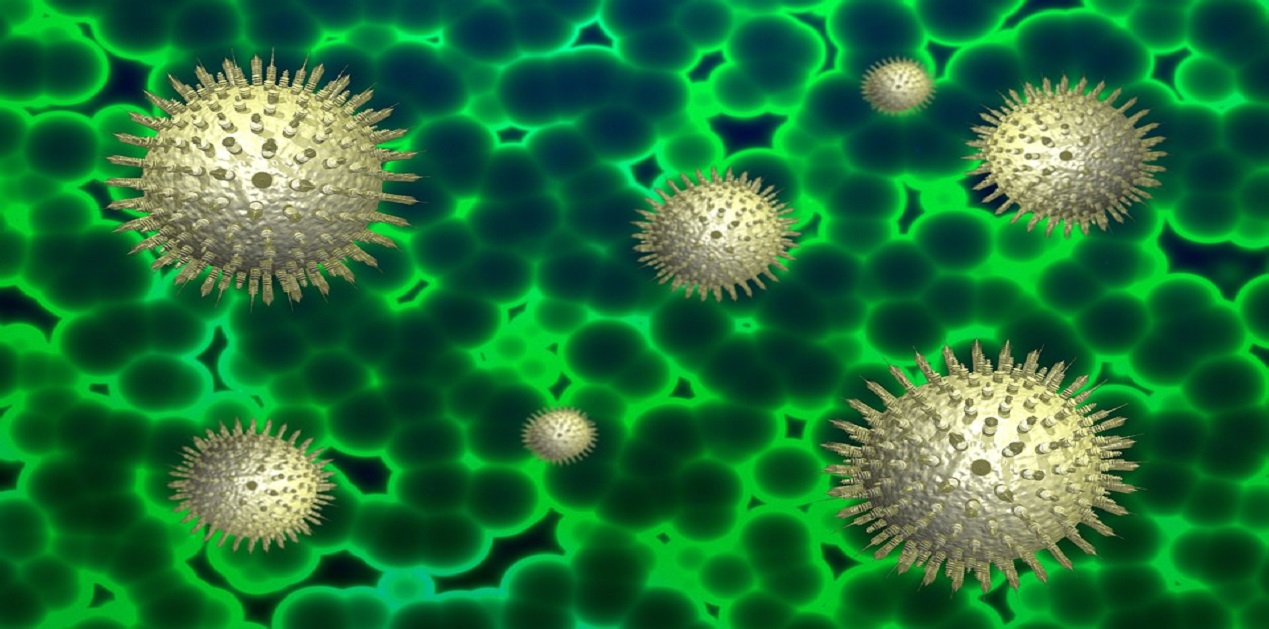



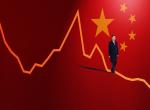

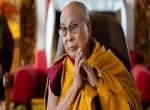
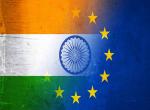

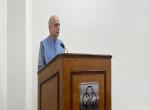
Post new comment